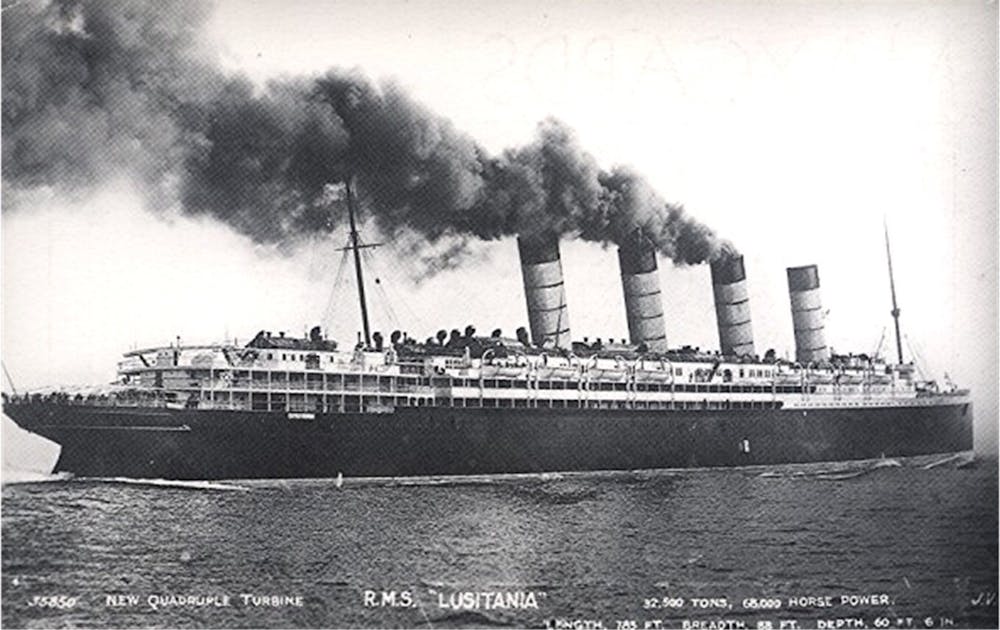I have always had an interest in shipwrecks. The Titanic was once my favorite — the most fascinating shipwreck bar none. It was the epitome of turn-of-the-century hubris and grandeur, a ship the likes of which was never seen and will never be seen again. However, there has recently been a reshuffling in my shipwreck rankings. While not quite supplanted, I have found another shipwreck that rivals my interest in the Titanic — the Lusitania, which sank on May 7, 1915. Lusitania: An Epic Tragedy by Diana Preston is the book that prompted my rethinking.
The sinking of the Lusitania, often relegated to an addendum as to why the U.S. entered World War I, possesses an incredibly complex and detailed history. Its sinking, not only a tragedy in and of itself, had wide-ranging political consequences felt from Washington D.C. to Berlin. This 18-minute event ruined lives, shifted political cabinets and greatly influenced public opinion.
Preston’s recounting of the event is heart-wrenching and gritty, illuminating the extent to which governments and corporations will point fingers to avoid blame for tragedies or utilize them for political gain.
She begins by providing historical context for the beginning of the war. The book describes the naval arms race between Great Britain and Germany, who both attempted to create the fastest, most powerful and luxurious ship leading up to World War I. For Great Britain, its symbolic naval victory over Germany was partially represented by the grandeur and the speed of the Lusitania.
Preston then moves into a description of the voyage, including relatable events such as the production of passenger talent shows. The ship’s voyage was marred, though, by general unease following a German warning in the newspaper. Before disembarkment, Germany announced that any ship entering into British territorial waters was liable to be destroyed by their fleet of submarines.
The sinking of Lusitania forms the core of Preston’s novel. She describes the sinking itself in striking detail, showcasing the difficult decisions that 1,900 people had to make in a mere 18 minutes. I will never forget the story of Mabel Henshaw, who attempted to save the toddler of a woman in the neighboring cabin but had to later abandon him as she could not carry both the toddler and her own child.
Then comes the aftermath, which is marked by questions of who bears the most responsibility for the sinking, as discussed by Preston. Is it Germany for shooting down the ship? Is it the Cunard Line, owner of the Lusitania, for not heeding Germany’s warning and filling the ship's hold with munitions? Is it Great Britain for not giving the Lusitania an armed escort? Is it the captain for not following the process of zig-zagging his ship while in dangerous waters? The answers are difficult to fully know and certainly not helped by the propaganda machines in both Great Britain and Germany, which respectively shifted almost complete blame on the other party.
Lusitania: An Epic Tragedy is a masterful depiction of a tragic event that includes all of the nuance, reactions and ripple effects that were caused by the sinking of the Lusitania. It is a great read, not only for any history, shipwreck and survival enthusiasts but also for anyone who wishes to understand the diverse range of human emotions that is brought upon by tragedy.
Editor’s note: The original article used the incorrect pronouns for Preston.
The News-Letter regrets this error.





